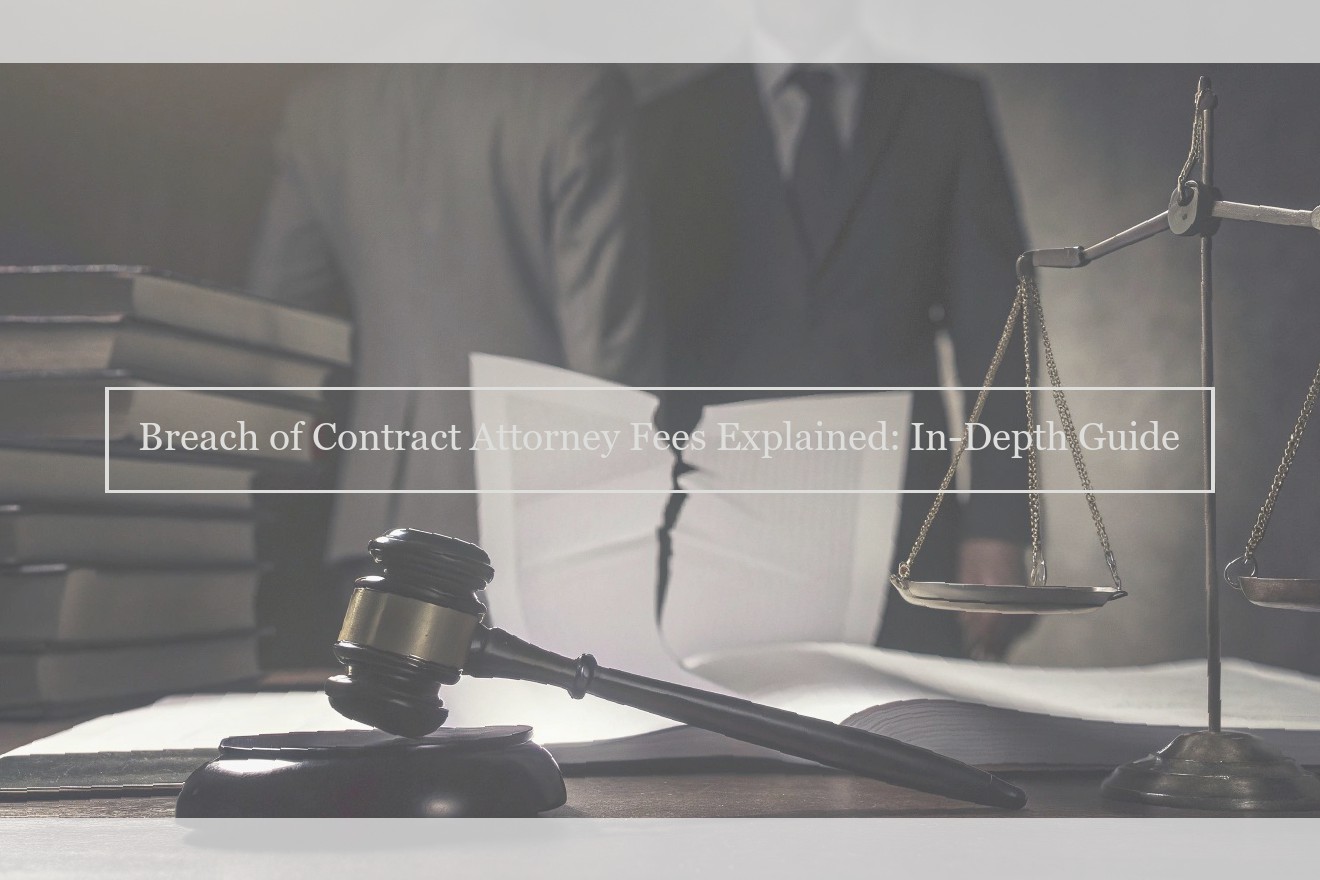Breach of Contract Basics
A contract, for the purposes of this blog post, is an agreement between parties to do or refrain from doing something by a certain date or under specific terms. The contract may be an agreement in the course of a purchase and sale transaction, a lease agreement, sales contract, loan agreement, and other types of agreements too numerous to detail. We are more concerned with the breach of these agreements and what may be involved as a result.
If one party does not perform under agreement or the other party denies performance , we have a breach of contract. The aggrieved party may have a right to enforce the contract or sue for breach. There are three basic elements to the action: (1) the existence of a contract; (2) a breach of that contract; and (3) damages resulting from that breach.
We are also concerned with the circumstances of the breach and whether legal representation may be required. Depending on the type of contract and the monetary value of the breach, you may choose to forego representation. However, if significant and/or your contract rights are at stake, you may well need an attorney’s help.

How Attorney Fees May Be Determined
The complexity of the breach of contract case is a primary factor in the amount of attorney fees. For example, if the breach of contract involves a complex accounting issue, an attorney may have to spend many hours on the case, thus warranting a higher attorney fee. Another factor that can influence attorney fees are the underlying facts of the case. A case that its heavily documented with emails and contracts is much easier and quicker to settle than one without such documentation. It may be easy and quick to obtain the information necessary to prosecute the case as opposed to a case where there is no written documentation addressing the critical issues of the breach of contract dispute.
Attorney Fee Structures
The most common type of fee arrangement in breach of contract cases is the traditional hourly fee. The attorney will charge a set fee for each hour he or she spends working on the case, and you will be billed as such. Typically, attorneys bill in tenths of hours, so keep that in mind if your attorney bills in increments larger than .1. The hourly fee is appropriate only for litigation cases. Where no litigation is pending, some attorneys will bill at a lower hourly rate. If the case involves the sale of real property and the retainer is several thousand dollars or more, you could negotiate a flat fee arrangement. In this scenario, you would pay the attorney a set amount to represent you from start to finish. The downside is that it would not cover litigation in the event it is necessary, but you would pay less if the case settles early. Occasionally, a breach of contract case is handled on a contingency fee basis. This most often occurs when damages are difficult to establish or whether the viability of the case is questionable. The attorney would be paid a set percentage of the recovery, and not from your funds. But the likelihood of hiring an attorney on a contingency fee basis in a breach of contract case is extremely slim.
Who Covers Attorney Fees in a Breach of Contract?
The general rule in contract actions is "the loser pays the winner’s fees." That principle holds true and useful when the parties have an agreement that makes it so. When I am drafting contracts, I fight day in and day out for my clients to avoid any provision that requires the loser to pay the winner’s fees. Usually, the reason for this is to extract larger settlements than the party’s exposure because the other side cannot afford to hire a lawyer.
Most states do have a provision that allows a party to recover attorney fees from the other side. Typically, I see this arise after the losing party didn’t have any contracts with the prevailing party, but wanted to implead my client into the suit to increase settlement pressure on my client. Some states allow a party to recover its attorney fees when its contract expressly provides for it. For example, the Mississippi courts have held that an attorney fee provision satisfies the requirement of a statute, such as the Uniform Commercial Code’s Section 11-7-83, to be in writing. Though I often hear people say that a provision that states "the loser pays the winning party’s attorney fees" is unenforceable, I have not seen any case law or statutes that provide for a prohibition on such a provision. In fact, some states have statutes that provide for fee awards for frivolous claims.
The prevailing party might also be entitled to its fees under a clause in the contract that sufficiently allows for an award of attorney fees. For example, a recent case out of federal court in Washington District Court at Tacoma, Arizona v. Tacoma Fire Sprinkler & Backflow Prevention LLC, (2019) 2019 WL 1860440, the court awarded the prevailing party its attorney fees even though there was no provision in the contract that expressly provided for such as award. The relevant provision of the contract stated: "The Owner reserves the right to require the Contractor to furnish a performance and/or payment bond at any time and in any amount as deemed necessary to protect the Owner’s coroner [sic] interests. All costs for such bond or bonds shall be part of the cost of the work." The contractor argued that "cost of the work" language was a "pay when paid" provision. The Court disagreed and held that "cost of the work" was not a pay when paid provision. The Court awarded attorney fees to the prevailing party awarding the fees even though the contract did not expressly allow for attorney fees because such fees were part of "the cost of the work."
In summary, unless there is an agreement that allows for a fee award, the prevailing party will not be awarded its attorney fees in the absence of an agreement.
Negotiating Your Attorney Fees
When considering a breach of contract claim, the potential client should find out what the attorney’s attorney-fee arrangement is and whether the attorney will change that arrangement if it is not in their best interest.
Just because you have been injured or your rights have been violated does not mean that you have a right to have somebody else pay for your attorney. However, in some breach of contract cases, the contract may apply. In other words, if you win, the other side pays your attorney fees, but that applies if you lose as well. If this is the case, it’s a game changer.
In commercial real estate cases, you can find that language in a lot of purchase agreements and leases. If you are a commercial real estate broker, you shouldn’t assume that the contract language means that you’ll get attorney’s fees if your client loses a lawsuit.
In transactional work , oftentimes we see language that says the parties will pay their own attorney’s fees. It’s not necessarily a deal breaker in a contract negotiation because sometimes you don’t want your group to pay $10,000 in attorney’s fees to fight over a $1,000 issue.
In the leasing context, for example, they could structure the lease so that every time there’s an alleged default, it doesn’t necessarily require the payment of attorneys’ fees. It could be only if the landlord has to pursue legal action.
In the commercial lease context, you’ll see that the landlord pays its attorney’s fees, but the tenant’s attorney’s fees are split in some manner. I had one case where our tenant lost the case, but we still received an award of 75 percent of our attorney’s fees because of the split.
Regarding negotiating attorney’s fees, the negotiation will be based largely on your overall bargaining power. You can use the attorney’s fees issue to negotiate several things that might be important to you:
Legal Aid and Affordable Attorneys
For individuals who cannot afford a breach of contract attorney, there are legal aid and low-cost resources available. The Legal Services Corporation (LSC) is an independent, nonprofit corporation that provides federal funding to 132 independent nonprofit legal aid programs. Each year, these LSC-funded programs provide civil legal services to nearly 2 million low-income Americans. Justia and Legal Aid America have compiled comprehensive lists of resources for finding legal help in your area. After entering your zip code, you will be presented with a list of lawyers who provide low-cost services. Modest Means Programs are legal aid programs that offer reduced-rate services to individuals with high income levels for legal assistance. Individuals are charged a reduced hourly fee in exchange for legal help. Some law schools operate their own legal aid clinics for their students to gain hands-on experience. Students represent clients under the supervision of licensed attorneys. Different from a pro bono attorney, limited scope representation clients are billed at a reduced hourly rate. Limited scope representations typically involve representing clients for specific tasks or portions of a legal matter. Volunteer lawyers for the arts (VLA) is a nonprofit legal service organization for the arts and helps artists and nonprofit art and cultural groups through educational programs and pro bono legal representation.
Conclusion: Legal Insights
This article should provide you with a foundation on understanding breach of contract attorney fees and the different Georgia laws that affect them. You still have to understand your options before determining which path you want to take, or whether you even want to litigate. The decision whether or not to sue in a breach of contract case is never as clear cut as it seems, and in many cases, it is better to avoid court altogether. Therefore, we strongly advise you speak with a contract lawyer about your particular situation BEFORE you make any significant decisions. If you are in a breach of contract dispute , dealing with a breach of contract yourself, or being sued for a breach, you may know from first-hand experience that litigation is expensive and often perilous. While competent lawyers cannot guarantee you success, they will at least give you the tools you need to fight a strong case. In cases where settlements become protracted, especially when attorneys are involved, without good legal representation, the system can break down, leaving the parties feeling frustrated and victimized.



+ There are no comments
Add yours